
‘Beggars Banquet,’ released 45 years ago, is generally acknowledged as the moment when the Rolling Stones came of age. After three albums that found Mick Jagger, Keith Richards and group indulging in every kind of studio trickery, this 1968 masterpiece found the Stones returning to the band dynamic. Playing it straight, fast and loose, they emerged with iconic tracks like ‘Sympathy for the Devil’ and ‘Street Fighting Man,’ launching what became their most iconic period. But after all this time, are there still new things to be learned from this 40-minute blast of classic Rolling Stones magic? We went out in search of 10 Things You Didn’t Know About The Rolling Stones’ ‘Beggars Banquet.’
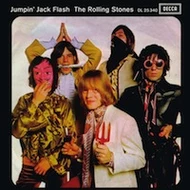
Turns out 'Beggars Banquet' actually could have been better
As consistently great as 'Beggars
Banquet' no doubt is, the album didn't include the huge hit single
'Jumping Jack Flash,' recorded during an inspired two weeks that also
produced 'Street Fighting Man,' 'Jigsaw Puzzle' and "Parachute Woman.'
Sensing what they had, the Rolling Stones rushed out 'Flash' as a
single, though it was at one point slotted to be a centerpiece of their
forthcoming album. The gambit paid off handsomely when 'Flash' topped
the charts in the U.K. and went to No. 3 in the U.S
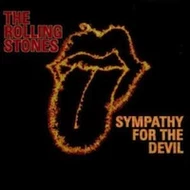
There was a late edit to one of its most famous songs
'Sympathy for the Devil' works as a
kind of overview for destructive moments in human history, with
mentions of the crucifixion of Christ, World War II, JFK's assassination
and the Russian Revolution, in which the entire family of Tsar Nicholas
II, save for daughter Anastasia, was murdered at the hands of the
Bolsheviks. But a signature line had to be updated when Robert Kennedy
was killed after 'Sympathy' had been written. Jagger changed the lyric
to "the Kennedys."

Keith Richards' muse was sparked by a breakthough on guitar
In his endlessly fascinating
autobiography 'Life,' Richards reveals that a chance discovery of open
five-string tuning "really reinvigorated me," beginning with the
sessions for 'Beggars Banquet': "It transformed my life," he writes. "I
had hit a kind of buffer. I just really thought I was not getting
anywhere from straight concert tuning." Richards would use the technique
for 'Jumping Jack Flash,' then on 'Brown Sugar,' 'Honky Tonky Women,'
'Start Me Up' and others.
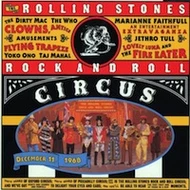
A promotional TV special went unseen for nearly three decades
The plan was to produce an all-star television event to promote 'Beggars Banquet,' so invites went out to John Lennon, Eric Clapton, the Who, Jethro Tull
and others -- all of whom gave incendiary performances. The problem:
The Stones hated their own set, so the 'Rock and Roll Circus' special
would go unreleased until 1996. It would be Brian Jones' final appearance -- and future Black Sabbath guitarist Tony Iommi's only date with Jethro Tull.
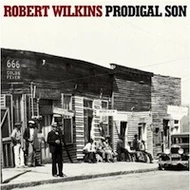
There was a deep connection with the album's only cover song
The only song not written by Jagger
and Richards that appeared on 'Beggars Banquet,' 'Prodigal Son,' was
originally done by Robert Wilkins in 1929 as 'That Ain't No Way to Get
Along.' This completed a circle of sorts, since a year earlier Wilkins
is said to have recorded the first known song titled 'Rolling Stone.'
And, in another sign of their return to straightforward fare, this was
the Rolling Stones' first blues cover since their 1964 take on Willie
Dixon's 'Little Red Rooster.'

A new producer heralded the Rolling Stones' classic period

There was an all-star element to the sessions - sort of
The bluesy 'No Expectations' was
driven by the slide playing of a then-unknown virtuoso named Ry Cooder,
who also added mandolin to the country-fried 'Factory Girl.' Elsewhere,
Dave Mason (who had worked with producer Jimmy Miller as part of Traffic)
and Nicky Hopkins made important contributions, as well. Hopkins would
become a de facto member of the Stones over the next few years.
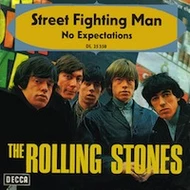
20th-century technology ended up playing a key role
Keith Richards couldn't get the
sound he wanted for 'Street Fighting Man' until he came up with an
ingeniously old-school idea: "I was fascinated by the possibilities of
playing an acoustic guitar through a cassette recorder, using it as a
pick-up." Charlie Watts
took a turn on this antique snare drum and cymbal, and the basic track
was finally created. Brian Jones later added tamboura, his last
signature moment with the group.
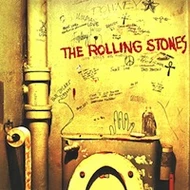
The original cover was shot in an L.A. car dealership's bathroom
Photographer Barry Feinstein was
responsible for the original cover image for 'Beggars Banquet,' which
was quickly pulled by the Rolling Stones' label after a torrent of
complaints. He found the dirty toilet in a graffiti-covered bathroom
(comments include "Wot, No Paper?") at a Porsche repair shop in Los
Angeles. In its place -- at least for a while -- went a bland
invitation-style cover, with the band name, album title and an RSVP
request in cursive over a snoozy white background. Feinstein's original
image has since been restored.
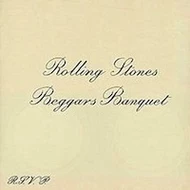
The replacement has been the subject of many tributes
Oddly enough, the second cover of
'Beggars Banquet' has turned into something of a talisman for
generations of subsequent groups. The stark design has been referenced,
or blatantly replicated, on a series of records including John Waite's 'Temple Bar,' Poco's 'A Good Feelin' to Know' and the Afghan Whigs' 'What Jail Is Like,' among others.












0 comentarios:
Publicar un comentario